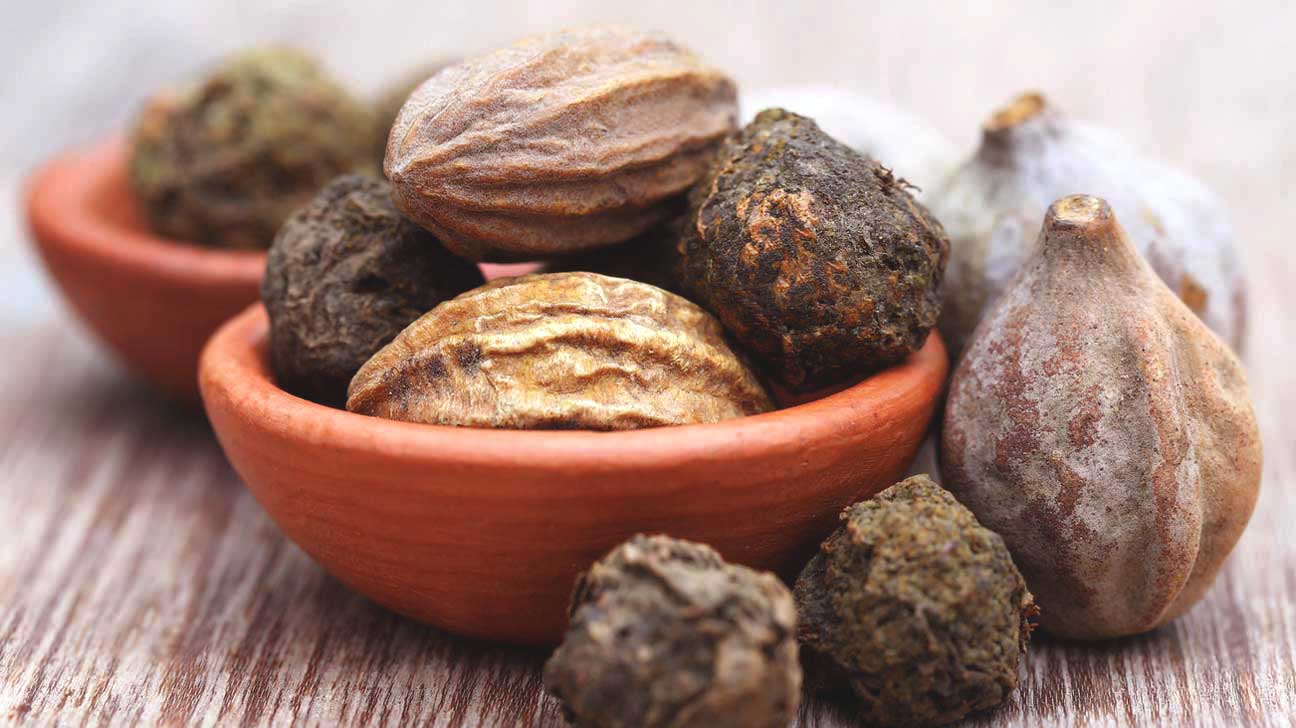Ayurveda, the ancient science of life, offers a treasure trove of herbal remedies for maintaining and improving eye health. From soothing irritated eyes to preventing vision loss, Ayurvedic herbs play a crucial role in the prevention and management of various eye diseases. Here, we explore some potent herbs used in Ayurveda for promoting ocular wellness.
1. Triphala (Three Fruits): Triphala is a classic Ayurvedic formulation comprising three fruits: Amalaki (Emblica officinalis), Bibhitaki (Terminalia bellirica), and Haritaki (Terminalia chebula).  This combination is renowned for its antioxidant properties, which help to rejuvenate ocular tissues, reduce inflammation, and promote clarity of vision.
This combination is renowned for its antioxidant properties, which help to rejuvenate ocular tissues, reduce inflammation, and promote clarity of vision.
2. Saffron (Crocus sativus): Known as “Kumkuma” in Ayurveda, saffron is prized for its therapeutic effects on the eyes.  It possesses anti-inflammatory, antioxidant, and antimicrobial properties, making it effective in treating conditions like conjunctivitis, dry eyes, and age-related macular degeneration.
It possesses anti-inflammatory, antioxidant, and antimicrobial properties, making it effective in treating conditions like conjunctivitis, dry eyes, and age-related macular degeneration.
3. Amla (Indian Gooseberry): Amla is a potent source of vitamin C and other antioxidants, which help to strengthen the eye muscles, improve vision, and prevent oxidative damage to ocular tissues. Consuming fresh amla fruit or its juice can promote overall eye health and prevent the progression of age-related eye diseases.
4. Ginkgo Biloba: While not native to Ayurveda, ginkgo biloba has gained popularity in traditional medicine systems for its neuroprotective and vasodilatory effects.  In Ayurveda, it is known as “Brahmi,” and it is used to enhance memory, cognitive function, and circulation to the eyes, thereby supporting vision health.
In Ayurveda, it is known as “Brahmi,” and it is used to enhance memory, cognitive function, and circulation to the eyes, thereby supporting vision health.
5. Neem (Azadirachta indica): Neem is revered in Ayurveda for its antimicrobial, anti-inflammatory, and detoxifying properties.  When applied topically or used as an eye wash, neem can help alleviate symptoms of eye infections, allergies, and inflammation, while also promoting wound healing.
When applied topically or used as an eye wash, neem can help alleviate symptoms of eye infections, allergies, and inflammation, while also promoting wound healing.
6. Tulsi (Holy Basil): Tulsi is considered a sacred herb in Ayurveda, valued for its immune-modulating, anti-inflammatory, and antioxidant effects.  Consuming tulsi tea or applying its juice around the eyes can help soothe irritation, reduce swelling, and protect against environmental toxins that affect ocular health.
Consuming tulsi tea or applying its juice around the eyes can help soothe irritation, reduce swelling, and protect against environmental toxins that affect ocular health.
7. Licorice (Glycyrrhiza glabra): Licorice root is rich in glycyrrhizin, which exhibits anti-inflammatory and anti-allergic properties.  It can be used internally or externally to alleviate symptoms of eye allergies, itching, and redness, providing relief and promoting healing.
It can be used internally or externally to alleviate symptoms of eye allergies, itching, and redness, providing relief and promoting healing.
8. Ghee (Clarified Butter): Ghee is a staple in Ayurvedic preparations for eye health due to its lubricating, nourishing, and rejuvenating properties.  Applying warm ghee around the eyes or consuming it internally helps to moisturize dry eyes, reduce inflammation, and enhance vision clarity.
Applying warm ghee around the eyes or consuming it internally helps to moisturize dry eyes, reduce inflammation, and enhance vision clarity.
Incorporating these herbal remedies into your daily routine, along with proper diet and lifestyle practices, can significantly contribute to maintaining optimal eye health and preventing the onset of eye diseases. However, it is essential to consult with a qualified Ayurvedic practitioner before initiating any herbal treatment to ensure safety and efficacy, especially if you have pre-existing eye conditions or are taking medications. With the wisdom of Ayurveda and the healing power of nature, we can nurture and preserve the precious gift of sight for generations to come.